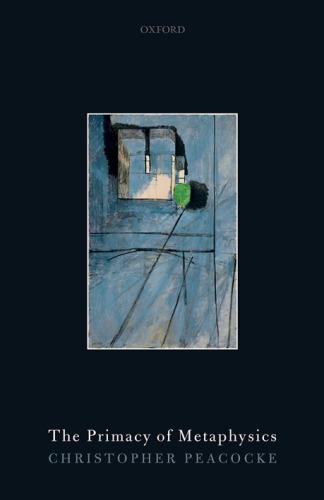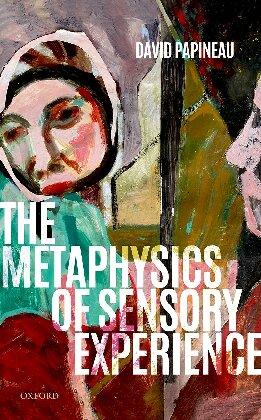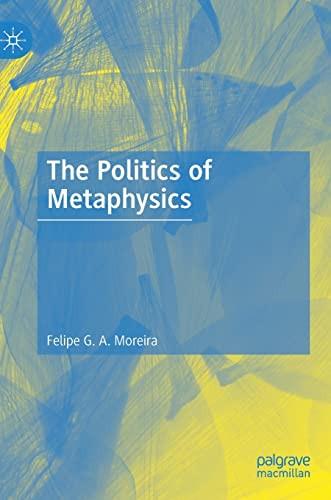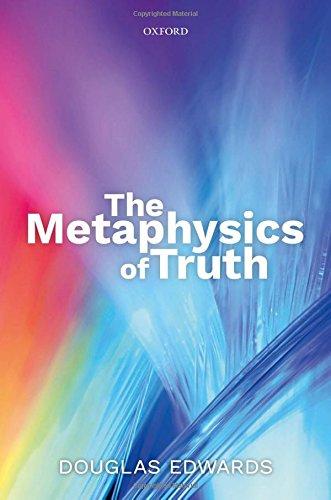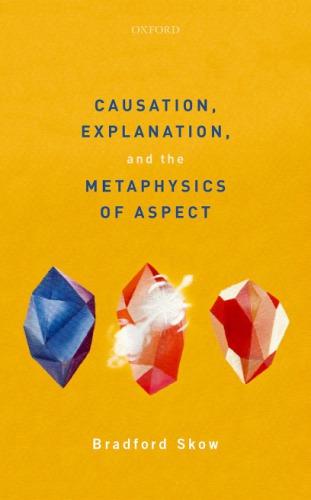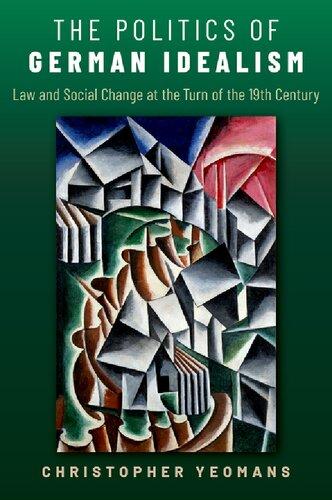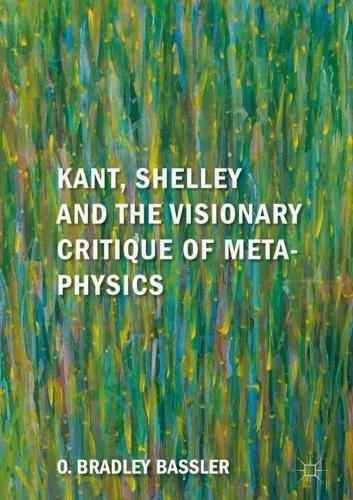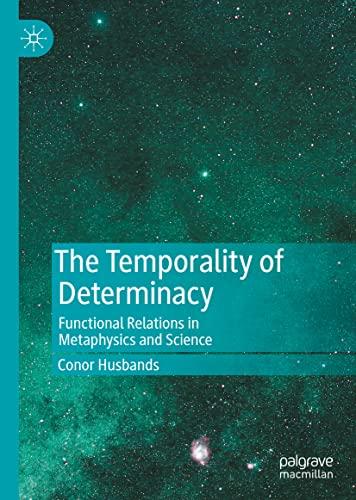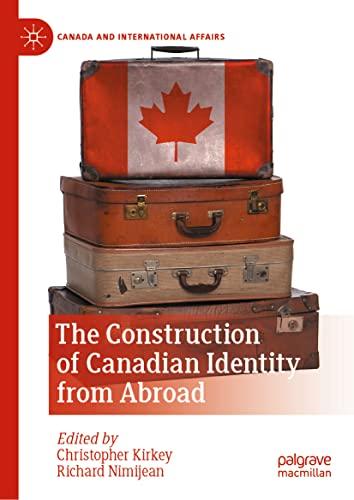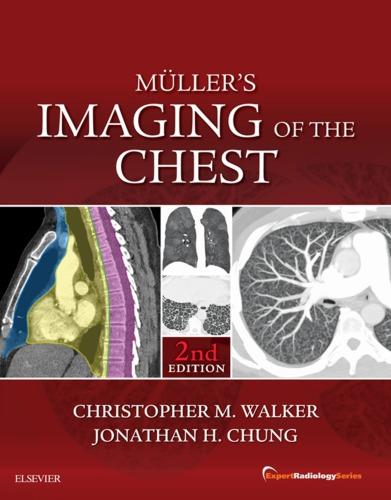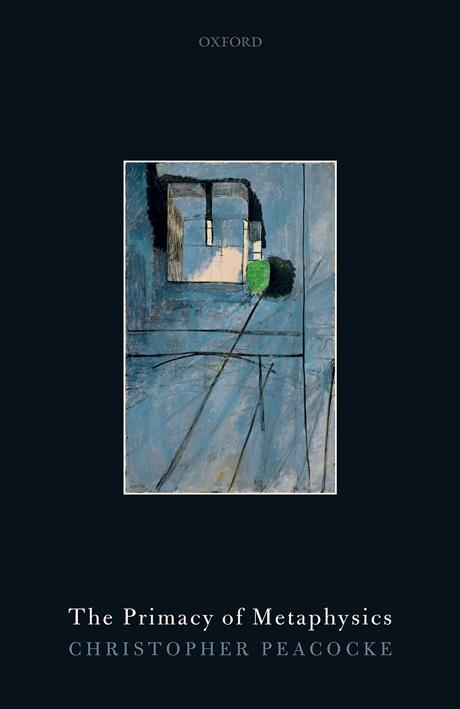AcknowledgementsandSources
InadditiontomyregularseminarsatColumbiaandUCL,Ipresentedtwoseries oflecturesbasedonthematerialpresentedhere,oneinthe ‘Master-Seminar’ seriesatFribourgUniversityinJune2015,theotherattheInstituteofPhilosophy attheSchoolofAdvancedStudyinLondonUniversityintheautumnof2016.At theFribourgevents,IlearnedfromthecommentsofMartineNida-Rümelin, LauraSchroeter,andGianfrancoSoldati,whomIalsothankwarmlyforthe invitationtospeakthere.InLondon,Ihadthebenefitofmanyexchanges,and extensivediscussionofearlierversionsofsomeofthesechapters,withBillBrewer andNickShea.
Chapter1waspresentedattheMindandLanguageSeminaratNYUinthe springof2013.ItwasonlylaterthatIfullyappreciatedthechangeinposition neededtoaddressthehighlyperceptivecommentsoftheseminarorganizers, StephenNealeandStephenSchiffer.Ihopethetreatmentoftheno-prioritycases inChapter1meetstheneedstheydiscussed.Thischapter,alongwithsome materialonmagnitudes,wasalsopresentedinSalvador,Brazil,atthe2013 meetingoftheInter-AmericanCongressofPhilosophy.Commentstherefrom DavidChalmers,MichaelDevitt,PaulHorwich,andPeterRailtonwereparticularlyhelpful.
Chapters2and3grewoutofsomeearlierworkonmagnitudes(Peacocke 2015),andIrepeatmythankstothoseacknowledgedthere:DavidAlbert,Philip Kitcher,andRobertStalnaker.ExtendedcommentsfromTylerBurgeandHartry Fieldgreatlyinfluencedthatearliermaterial.Ialsolearnedfromthecomments andsuggestionsofDavidChalmers,GeoffLee,TimMaudlin,andFrançois RecanatiatajointNYU/ENS(InstitutJeanNicod)meetinginParisin2015. TheexpandedtreatmenthereinvolvinganaloguecomputationandrepresentationwaspresentedinaseminaratCSMNinOsloinOctober2016,where SebastianWatzl’ssuggestionsinfluencedthepresenttext.Mostrecently,some ofthematerialwaspresentedatJacobBeck’sworkshop ‘PerceptualCapacities andMagnitudes’ atYorkUniversity,Toronto,inMay2018.Mycommentators therewereGeoffLeeandCoreyMaley,frombothofwhomIlearnedmorethan Ihavebeenabletoincludehere.Theirdevelopingworkwillcomplementwhat Iofferhere.DiscussionswithJacobBeck,CaseyO’Callaghan,andDianaRaffman attheTorontomeetinghavealsoinfluencedme.
AnearlierversionofChapter3appearedas ‘Temporalperception,magnitudes,andphenomenalexternalism’ (Peacocke2017a).MythankstoIanPhillips forvaluablecommentsonthatearlierversion,andtoSusannaSchellenberg,and membersofherseminar,fordiscussionatmypresentationtoherMarcSanders SeminaratRutgersin2015.
Chapter4ontheselfandthe first-personwayofthinkinghashadarather longerevolution.AsInotedinthePreface,theinitialmaterialfromwhichmy book TheMirroroftheWorld (2014a)developedwasoriginallyintendedasjust onepartofabookontheprimacyofmetaphysics.InfactIcametothinkthatthe positioninthatbookneededsomefurtherdevelopment.Iundertooksomeof thatdevelopmentin ‘Philosophicalreflectionsonthe firstperson,thebody,and agency ’ (Peacocke2017b),preparedfortheworkshopinCopenhagenorganized byFrédériquedeVignemontandAdrianAlsmith.ThereIwasgreatlyassisted bydiscussionwithFrédériquedeVignemont,withmycommentatorJosé Bermúdez,andwithPatrickHaggard.Furthermeetingsin2016atHarvard andinLondonproducedsignificantobservationsfromMatthewBoyle,Michael Martin,TonyMarcel,LucyO’ Brien,SebastianRödl,HongYuWong andfrom PatrickHaggardforasecondtime.Issuesverycloselyrelatedtothoseaddressed inthischapterarepursuedintheSymposiumon TheMirroroftheWorld in Analysis ,andIhavebeenhelpedbyreflectingonthecontributionstothat SymposiummadebyNaomiEilan(2016),KarenNeander(2016),andSusanna Schellenberg(2016).
Inafurthersigneitheroftheapparentlyinexhaustibleinterestofthetopicsof theselfandthe firstperson,orofmyowninadequacytothatsubjectmatter,or both,Icametothinkthatadeeperandmoregeneralunderstandingofthe relationbetweenmentaleventsandownershipoughttobegiventhanIhad developedin TheMirroroftheWorld.Averywelcomeopportunitytopresent somefurtherpointsonthat ur-issue,andalsotoaddresshisownradicalviewson thematter,arosefromaninvitationfromMarkJohnstontospeakathisseminar inPrincetoninthespringof2017.I findmyselfagainthankinghimforvaluable extendeddiscussionoftheseissues.Theinductiveevidenceisoverwhelming thatmuchmorewillneedtobesaidonthemetaphysicsofsubjectsandthe firstperson.
Chapter5onnumbersoffersaway,verydifferentfromthemodelsofthe precedingchapters,inwhichametaphysics-firstviewofadomaincanbecorrect withoutcausalinteractionwithelementsofthedomain.Icametotheview outlinedherebyreflectingonFrege’sviewsonnumber,onCrispinWright’ s 1983treatmentoftheissues,andbyKitFine’s2002discussion.LiketheprinciplebasedtreatmentofmetaphysicalnecessitythatIofferedin BeingKnown (1999),
thetreatmentofnumbersinthischapterproposesanoncausalbutnevertheless metaphysics-firstmodelofunderstanding.IamespeciallygratefultoØystein Linneboonthreecounts:forsubstantivediscussionsoftheseissues;forhisthoughts ontherangeofconceivablepositions;andalsoforhisguidanceandadviceonthe recentliterature.IanRumfitt’ sdetailedcommentsonanearlierdraftofthis chapterhavehelpedme,onthisasonotherphilosophicaltopics.
InChapter6Ireturntotheissueoftheprinciplesthatexplainwhythelimitsof intelligibilityliewheretheydo.Iclaimthatwecan findananswertothisquestion byreflectingontheconstraintsontheproperrelationsbetweengenuineconcepts andtheirsubjectmatter.Thishaslongbeenaninterestofmine,asitprobably isforanyonedrawntophilosophyatall.Ihopetheargumentofthischapter cancontributetoanexplanationofwhatiscorrect,ifanything,inmyearlier diagnosisoftheissuesaboutthelimitsofintelligibility(1988).Inadditiontothe lectureseriesmentionedabove,thematerialofthislastchapterwaspresentedin theyears2014–16attheUniversityofBarcelona,theUniversityofCaliforniaat Davis,thePhilosophicalSocietyatOxfordUniversity,andParisScienceset Lettres(EHESS).Mythanksforveryextensivediscussionsoftheseproblemsto DavidAlbert,BillBrewer,andShamikDasgupta,eachofwhomhavemademe rethinkmypositionatonepointoranother.Ihavealsobeeninfluencedbythe commentsatthepresentationsin2014–16fromManuelGarcia-Carpintero, PascalEngel,UriahKriegel,RobertMay,JoelleProust,FrançoisRecanati,and TimothyWilliamson.
Asthereadercaninfer,Ihavehadsignificantadvicefrommanyquarters. Thisbookwouldbemuchtheworsewithoutthecontributionsofourgenerous philosophicalcommunity.ThatcommunityincludesthetwoanonymousrefereesforOxfordUniversityPress,whoseexceptionalcriticalacumen,evident knowledgeofthe field,andhelpfulexpositorysuggestionshavemuchimproved thetext.Finally,aswithmypreviousfourbooks,PeterMomtchiloff ’spatience, standards,anddevotiontophilosophyhaveprovidedasupportivebackground thatIsuspectisevenmoreimportantthanheorhismanyauthorsknow.
1 MetaphysicsandtheTheory ofContent
1.ThePrimaryThesis
Somephilosophyisconcernedwiththebroadareaofthenatureofobjectsor propertiesofagivenkind materialobjects,orabstractentities,ormental properties.Somephilosophyisconcernedwiththebroadareaofthenatureof themeaningofsentences,orthecontentofthoughtsandperceptions,andmore generallywaysofthinkingaboutagivensubjectmatter.TheworkIpresenthere isconcernedwiththerelationbetweenthesetwobroadareas.Howshouldwe conceiveoftherelationbetweenthenatureormetaphysicsofagivendomainon theonehand,and,ontheother,theconceptsandwayswerepresentelementsof thatdomaininthoughtandlanguage?Isthisrelationoneofdependence?Ifso,in whichdirection,andwhy?Canwegainexplanatoryinsightfromreflectingupon thenatureofthisrelation?Thesearenotjustfamiliarquestionsabouthowsense determinesreference.Theyareratherquestionsaboutsenseanditsrelationsto themetaphysicsofthereferencesinquestion.
ThequestionsIamaimingtoaddresshave,inoneformoranother,beeninthe landscapeofthephilosophyoflanguageandthoughtformanydecades.Sometimestheyhavebeeninsharpfocus,sometimesinthebackground.Myaimin thisworkistwofold:toconsidersomeparticulardomainsinwhichtheseissues areofspecialinterestorsignificance;andtoofferinresponsetothesegeneral questionssomeanswersthatareintendedtoapplytoanyparticulardomain,and toanyparticularfamilyofmeanings,concepts,orintentionalcontents.Plausible answerstoquestionsabouttherelationsbetweenthemetaphysicsofadomain andthewaysinwhichwethinkaboutithaveramificationsthroughmultiple areasofphilosophy,fromissuesinmetaphysicsitself,throughthetheoryof mentalrepresentation,perception,andepistemology,toprinciplesdetermining theboundsoflegitimatemeanings.
Wecantakeitthatthetaskofformulatingthemetaphysicsofanygiven domainistocharacterizethenatureofelementsinthatdomain,tosaywhatis constitutiveofthoseentities.ThenthegeneralanswerIoffertoourinitial questionaboutthetwobroadareasImentionedcanbestatedinthissimple PrimaryThesis:
Themetaphysicsofadomainisinvolvedinthephilosophicalexplanationof thenatureofthemeaningsofsentencesaboutthatdomain;andthemetaphysicsofadomainisinvolvedinthephilosophicalexplanationofthenature ofintentionalcontents(waysofrepresenting)concerningthatdomain.
Sothisisametaphysics-involvingthesis.
TherearestrongerandweakerpositionsthatarecommittedtothePrimary Thesis.But firstwehadbetterclarifythePrimaryThesisbyexplainingthemany termsofartcontainedinitsstatement.
Bya ‘domain’,Imeanarangeofobjects,inthebroadestsense,andproperties andrelationsonthoseobjects.By ‘themetaphysicsofadomain’ Imeanatheory thatstatestrulywhatisconstitutiveoftheobjects,properties,andrelationsof thatdomain atheoryofwhatmakesthemtheobjects,properties,andrelations theyare.Wearenotconcernedherewithwhatmaymerelybefolk-metaphysics, oramerelymentallyrepresentedmetaphysics.Thosearebothgenuineand philosophicallyinterestingconceptionsofmetaphysics,buttheyarebothtobe distinguishedfromwhatImeanbymetaphysicsinstatingthePrimaryThesis. Imeanwhatisreallyconstitutiveoftheobjects,properties,andrelationsin question.Somefeatureattributedinthemetaphysicsofadomaincanbe explanatoryoffactsaboutintentionalcontentsconcerningthatdomainonlyif theelementsofthedomainreallydohavethatfeature,whetherornotordinary thoughtrepresentsitashavingthefeature.
Theentitiesinthedomainareatthelevelofreference,whereastheintentional contentsandmeaningsareatthelevelofsense.Soif,forinstance,weare consideringthedomainofspatialentitiesandtheirpropertiesandrelations, thentherelationbetweenthreeeventsofforminganisoscelestrianglewouldbe intherelationsincludedinthatdomain.Thatrelationistobedistinguishedfrom theseveralwaysinwhichtherelationmaybegiveninlanguageorinperception.
Similarly,propertiesaretobedistinguishedfromconcepts,whicharewaysin whichpropertiesaregiveninthoughtorlanguage.Thisisthesameconceptionof propertiesasoutlinedinHilaryPutnam’ spaper ‘OnProperties’ (1975).Ofcourse thereexiststhespecialcaseinwhichwetakeasthedomainthedomainof concepts,notions,orsensesthemselves,andtheirpropertiesandrelations.But thentheintentionalcontentsandmeaningsmentionedinthePrimaryThesisfor
thatspecialdomainwillbehigher-levelconceptsofconcepts,andconceptsof theirpropertiesandrelations.ThePrimaryThesisisalwaysaclaimaboutthe levelofsense,concepts,andnotions,ontheonehand,andtheentitiestowhich thesesenses,concepts,andnotionsrefer.Itisalwaysathesistotheeffectthatthe metaphysicsofentitiesatthelevelofreferenceisexplanatoryofthenatureof entitiesatthelevelofsense.
Somuchbywayofexplanationof ‘domains’;nowfor ‘explanation’.By ‘ an explanationofthenatureofthemeaningofsentences’ inthestatementofthe PrimaryThesisImeananexplanationthatdoesnotmerelyspecifythemeanings ofexpressionsintherelevantlanguage,butratheratheorythatsays,substantively,whatitistounderstandthoseexpressions.InMichaelDummett’sterminology,myconcernhereiswiththetheoryofmeaningingeneral,ratherthan meaning-theoriesforparticularlanguagesorfragmentsoflanguages(1991:22). Inparallelfashion,by ‘anexplanationofthenatureofintentionalcontents concerningadomain’,Imeanatheorythatsayswhatitistobecapableof mentalstatesandeventscontainingthoseintentionalcontents topossessorto graspthem,ifyouwill.Theintentionalcontentswithwhichweareconcerned herearecontentsthatspecifythewaysomeelementofthedomainisgiven.These intentionalcontentsarebroadlyatthelevelofsense,atthelevelofwaysinwhich thingsaregiven,ratherthanatthelevelofreference.
IhavestatedthePrimaryThesisbothforconceptsandforlanguage.Ifthetheory ofconceptsisalsopriorintheorderofphilosophicalexplanationtothetheoryof linguisticmeaning,itwouldsufficetostatethethesisforthecaseofconcepts.The thesisforlinguisticmeaningwouldthenbeaconsequenceofthePrimaryThesis forthecaseofconcepts.
ThePrimaryThesisstatesarelationofphilosophicalexplanatoryinvolvement ofthemetaphysicsofadomain,intheabovesense,inthetheoryofmeaningfor expressionsofalanguageforthatdomain,andinthetheoryofintentional contentsforthatdomain.Bysuchexplanatoryinvolvementforagivendomain, Imeanthatthecorrespondingtheoryofmeaningandtheoryofintentional contentsinonewayoranotherpresupposesthatthemetaphysicsofthedomain hascertainfeatures.
Suchapresuppositioncantakevariousforms.Oneformisthatthetheoryof meaningandintentionalcontentsforthedomainrequiresonewhounderstands thelanguage,orisinmentalstateswiththerelevantcontents,tobeinstates whoseverynaturerequiresthemetaphysicsofthedomaintohavecertain properties.Forexample,theaccount ofunderstandingorgraspofcontents maymakeessentialmentionofrelationsinwhichathinkerstandstoelements ofthedomain,relationswhichcanbei nstantiatedonlyifacertainkindof
metaphysicsiscorrectforthedomain.Anotherformthepresuppositionmight takeisthatthetheoryofmeaningorintentionalcontentiscorrectinitsgeneral structureonlyifacertainmetaphysicsofthedomainiscorrect.Iwillillustrate eachofthesecaseslaterinthiswork.Thekindofpresuppositionhereisnot anythingtodowithconversationalpresupposition,norisitanythingtodowith speechactsmoregenerally.Rather,atheoryofunderstandingorofgraspofa conceptpresupposesapropositionaboutthemetaphysicsofthesubjectmatterof theconceptifthefullaccountofunderstandingorgrasprequirestheonewho understandsorgraspstobeinstateswhosenatureimpliesacertainmetaphysics ofthesubjectmatter.Thefullaccountofunderstandingandofthestatesimplies thecorrectnessofacertainmetaphysics.Thereisabsolutelynoimplicationthat thismetaphysicsneedstobeknown,eitherexplicitlyortacitly,bythesubjectwho understandstherelevantexpressions,orgraspstheconceptinquestion.Itisthe metaphysicsthatisinvolvedintheunderstandingorgrasp,notanyrepresentationofthemetaphysics.
ThePrimaryThesisisintendedtoapplyonlytowhatisassessableastrueoras false.Onexpressivistviewsofsomeregionofdiscourse,sentencesinthat discoursearesaidnottobeassessableastrueorasfalse.Totakeaveryclear example,simplyforthepurposesofillustration,AllanGibbardpresentsan expressivistviewofrationalityinhisclaim,a “firstsketch”,that “tocallsomethingrationalistoexpressone’sacceptanceofnormsthatpermitit” (1990:7). OnGibbard’sview, “tocallsomethingrationalisnottostateamatteroffact, eithertrulyorfalsely” (1990:8).Inparticular,tocallsomethingrationalisnotto statethatithasthepropertyofbeingpermittedbyacceptednorms(1990:8).If Gibbard’streatmentofrationalityisright,therecannotbesuchathingasthe metaphysicsofrationality.Thereisnometaphysicsforsentencesforwhose componentswedonotneedarelationofreference.Theconditionsforapplying thePrimaryThesisarenotmet.ThescopeofthePrimaryThesisconcerns meaningsandcontentswhosenatureinvolvesarelationofreference.
Conversely,wheneverthereisreferenceandcorrespondinglytruth-conditions forsomepartoflanguageorthought,therewillbeacorrespondingmetaphysics. Whateverentitiesandpropertiesarereferredto,theremustbeanaccountof whatmakesthemtheentitiesandpropertiestheyare,andthatjustisametaphysicsforthatdomain.
SothePrimaryThesisisnotcommittedtotheviewthatforeverysignificant fragmentoflanguagethereisacorrespondingmetaphysics.Itiscommitted rathertotheviewthatwheneverthereisafragmentoflanguageforwhich thereisarelationofreference,andsoametaphysics,thenametaphysicsinvolvingthesis,thePrimaryThesis,holdsforit.
Thereisafundamentaldivisionbetweenastrongerandaweakerwayinwhich thePrimaryThesiscanholdforagivendomain.
In metaphysics-first cases,themetaphysicsofthedomainispriorintheorder ofphilosophicalexplanationofthenatureofthemeaningofsentencesabout thatdomain,andintheexplanationofthenatureofintentionalcontents concerningthatdomain.Itseemstomethatforalargerangeofdomains,the metaphysics-firstviewiscorrect.Thereisacasetobemadethatthemetaphysicsfirstexamplesincludenotonlythedomainsofspaceandtime,andthecorrespondingperceptualcontentsconcerningthem,butalsoawiderangeofdomainsof consciousmentalstates,andmentalcontentsandlanguageconcerningthem.
In no-priority cases,bycontrast,themetaphysicsofthedomainontheone hand,andintentionalcontentsandthemeaningsofsentencesaboutthatdomain ontheother,areeachinvolvedinthephilosophicalexplanationoftheother.The metaphysicsandthecontentsandmeaningsareconstitutivelycoeval;neitheris absolutelypriorintheorderofphilosophicalexplanation.Wemightdescribe theseascasesofentanglementofthemetaphysicswiththetheoryofconceptsand ofmeaning.
ThePrimaryThesisofmetaphysicalinvolvementisthenintendedtocoverall casesinwhichwehavetruth-assessablecontents,andthosecasessubdivideinto themetaphysics-firstcasesandtheno-prioritycases:
Primary Thesis: Metaphysical Involvement
Metaphysics-First CasesNo-Priority Cases
ThePrimaryThesisstandsopposedwhattowecancall meaning-first views, whichholdthattheoriesofmeaningandintentionalcontentconcerninga domainarealwaysexplanatorypriortothemetaphysicsofthedomain.The meaning-firstviewiscertainlynostrawman.Themeaning-firstviewisexplicit, orisimplied,inthepositionsofseveralmanifestlyimportantphilosophers.The meaning-firstviewisclearlyandexplicitlyendorsedbyMichaelDummettin The LogicalBasisofMetaphysics (1991).Iwillbeaddressinghisviewsinthenext section.Themeaning-firstviewisalsoimpliedbythepositiondevelopedinthe writingsofRobertBrandom,bothinhis firstbook, MakingItExplicit:Reasoning, Representing,andDiscursiveCommitment (1994),andinhislaterexpositions
anddevelopmentofhisviews(2000,2009).Brandom’sandDummett’sviews differinotherimportantrespects.Dummett(1981)expressedagreementwith Fregethatthesenseofanexpressionisindividuatedbytheconditionfor somethingtobeitsreference.Brandom,bycontrast,holdsthatreferencehas nofundamentalroletoplayinthephilosophicalelucidationofmeaningand understanding.OnBrandom’sview,themetaphysicsofwhatisreferredtocould hardlybeexpectedtoplayanypartinthephilosophicalelucidationofmeaning andunderstanding.
Wehaveherethen,insummary,threelarge-scalepositionsinphilosophythat canbeassessedforanygivendomain:themetaphysics-firstview,theno-priority view,andthemeaning-firstview.Itisphilosophicallycrucialwhichviewis correctforanygivensubjectmatter.Itisalsoofequallygreatinteresttoconsider whatgeneral,domain-independentargumentscanbegivenfororagainsteachof thesethreemajorpositions.
TheissuesraisedbythePrimaryThesisdonotariseonlyonthesupposition thatsensesareelementsofsomeThirdRealmofsensesormeanings,utterlyfree ofanyanchorstothementalandphysicalrealm.TheissuesraisedbythePrimary Thesisariseequallyforanyonewhoveryreasonablyrequiresthattalkofsense andmeaningbeanchoredincomplexpropertiesofcreaturesinthespatiotemporalworld.Supposeweaimtorespectthatrequirementofanchoring,howeverit isspelledout,inanelucidationofgraspofsenseintermsofpropertiesofmental files(Perry2002a;Recanati2012;Peacocke2014a).Therearevariouswaysof developingthisidea,butunderallofthem,typesofmental filecorrespondto sensesorwaysofrepresentingsomething.Wecanthenraisequestionsaboutthe propertiesandrelationsofthesemental files.What,constitutively,explainsthe factthatamental file’stypecorrespondstoaparticularsenseormeaning?Dowe presupposeapriormetaphysicsoftheentitytowhichthe filerefersinexplaining therelationsinvirtueofwhichthemental filecorrespondstoaparticularsenseor meaning?Ifso,thatisaversionofthemetaphysics-firstformofthePrimary Thesis.Oristhemetaphysicsofthereferencesnotprior,butitselfdependson relationstosystemsofmental files?Thatwouldbeaversionoftheno-priority formofthePrimaryThesis.Theseissuesofpriorityandorderofexplanation remainrealwhenweanchorsenseandmeaninginpsychologicalreality.The issuesarenotartefactsofFrege’sconceptionoftheThirdRealm.
Myagendafortheremainderofthischapteris, first,todevelopageneral objectiontomeaning-firstviews,inawaythatbeginstooutlinewhatisinvolved inthecorrectnessofthemetaphysics-involvingconception.Accordingtothe metaphysics-involvingconception,aprinciplethatMcDowell(1994)hasargued applieseverywhere,whathecalls ‘theUnboundednessoftheConceptual’,holds
insteadonlyforadistinctivepropersubsetofcases,theno-prioritycases.Itdoes notapplytothemetaphysics-firstcases.Ithengoontoconsiderthecharacterof avarietyofno-prioritycases,andwhatmakesthempossible;toargueforthe importanceofapplyingthedistinctionbetweenorderofdiscoveryandtheorder ofexplanationintheseinvestigations;tosayalittlemoreaboutwaysinwhichthe metaphysics-firstcategorycanapplytoadomain;andtoelaboratesomeofthe ramificationsofthepositionasdevelopedthusfar.
2.AgainstMeaning-FirstViews
Thosewhobelieveinmeaning-firstviewstendtoholdtheminentiregenerality forarbitrarydomainsofsubjectmatters.Theytendtodosobecausetheythink thattherearedomain-independentreasonsforacceptingthemeaning-firstview. Wecanbeginamoredetailedconsiderationoftheissuesbyaddressingthe argumentsintheearlypagesofDummett’sbook TheLogicalBasisofMetaphysics (1991),whichprovidesaparticularlysharpandexplicitformulationofan entirelygeneralmeaning-firstview.AlthoughforthemostpartDummettdoes notwriteintermsofexplanatorypriority,hedoesendorseaseriesofclaimsthat implythefalsityofthePrimaryThesis.
HerearesomeofDummett’sclaims:
(a) “Thetaskofconstructingameaning-theorycan,inprinciple,be approachedwithoutmetaphysicalpresuppositionsor arrière-pensées:successistobeestimatedaccordingasthetheorydoesordoesnotprovidea workableaccountofapracticethatagreeswiththatwhichweinfact observe” (1991:13–14).
(b)Ofsuchameaning-theory,Dummettasks, “Willitalsosettlethemetaphysicalcontroversiesthemselves?” Heanswers, “Itismycontentionthat itwill” (14).
(c)Further, “Itwillresolvethesecontroversieswithoutresidue:therewillbe nofurther,properlymetaphysical,questiontobedetermined” (14).
(d)Dummettaddsthiscommentonhishypothesizedresolutionofmetaphysicaldisputeswithinthetheoryofmeaning:
Onceresolvedinfavourofaparticulardoctrine,thepictureofrealitythatgoes withthedoctrineandthatgivesititsmetaphysicalexpressionwillautomatically forceitselfuponus;butithasnoadditionalcontentofitsown.Itsnonmetaphoricalcontentconsistsinthemodelofmeaningwhichitsuggests;however powerfullythepictureimpressesitselfonus,wehavetobearinmindthat itscontentisathesisinthetheoryofmeaning,and,beyondthat,itisnomore thanapicture.(15)
OnDummett’sconception,then,themetaphysicsofadomainislegitimate insofar,andonlyinsofar,asitcanbeconstruedasmakingclaimsfoundedin thecorrectmeaning-theoryforalanguageaboutthatdomain.Metaphysics,on Dummett’sview,simplycouldnothavethekindofstatusitwouldneedtohave forthePrimaryThesistobecorrect.
ThecorrectnessofthepositionformulatedinthePrimaryThesisisatimeless, ur-issueinphilosophy.Thepositionhastobeassessedinthelightoftwo differentkindsofevidence,bothofwhichareessentialforafullphilosophical understanding.
Thethesiscanbeassessed firstatthelevelofavarietyofparticulardomains andintentionalcontentsconcerningthosedomains.DoesthePrimaryThesis holdwhenwelookateachofthecasesofthedomainmaterialobjectsandtheir properties,ornumbersandtheirproperties,orreasons,ormoralproperties?Itis achallengingandhighlysubstantivemattertogiveaphilosophicalaccountofthe metaphysicsandofthetheoryofintentionalcontentforanyonedomain.Itisa furthersubstantivetasktogiveanexplanatoryphilosophicalaccountofthe relationsbetweenthesetwotheories.
ThePrimaryThesisobviouslyhastoberejectedifitdoesnotholdforsome particulardomain.Butevenifweexamineanumberofdiversedomains,andthe Thesisseemstoholdinallofthem,suchprogress,substantialthoughitwouldbe, wouldnotgiveusallofthephilosophicalunderstandingweoughttoseek.Forwe shouldwanttoknow why thePrimaryThesisholdsacrossallthesedomains.Are theregeneral,domain-independentconsiderationsforthinkingthatthePrimary Thesismusthold?Ifso,whatarethey?Conversely,evenifwehaveanswersto questionsatthatverygenerallevel,wealsoneedofcoursetounderstandhowthe PrimaryThesisworksoutindetailinvariousparticulardomains.
Thereisageneral,domain-independentconsiderationthattellsagainst Dummett’sequallygeneralmeaning-firstview.Icallittheargumentfromthe natureofunderstanding.
Theargumentfromthenatureofunderstandingstartsfromthepointthat aconceptisindividuatedbythefundamentalconditionforsomethingtobe itsreference,ortofallunderit.ThatisaclassicalFregeanthesisaboutsense, statedforcompletetruth-evaluablesensesinhis Grundgesetze (1967,2013:§32). Aplausiblefurtherelaborationofthatcoreideastartsfromtheprinciplethatto thinkofanentityunderagivenconcept,thethinkerhastostandinaparticular relationtotheentity.Thatis,foranygivenconceptC,thereisacorresponding relationR(C)inwhichthethinkerhastostandtosomethingtobethinkingofit underthatconcept.Thisfurtherelaborationisageneralizationinthespiritof Evans(1985).TheFrege-inspiredclaimisthenthatthisrelationR(C)isthe
relationthatindividuatestheconceptC,therelationthatmakestheconceptthe conceptitis.
Toillustratethisforthecaseofasingularconceptanditscorresponding relation,considerasingulardemonstrativeperceptualconcept thatlamp as employedbyathinkeronaparticularoccasion.Foranobjecttobethereference ofthisperceptualdemonstrativeonaparticularoccasioninvolvestheobject’ s beinggiveninacertainwayinperceptiononthatoccasion.Anobjectisthe referenceofthissingularconcept,asemployedbythethinkeratagiventime,if andonlyiftheentityisthelampthatisperceivedinthatwaybythethinkerat thattime.Thewayinvolvesthelampbeingperceivedasatacertaindistanceand directionfromthesubject(andofcoursealampthatisperceivedinthatwaymay notbewhereitseemstobe).
Foranexampleoftherelationcorrespondingtoapredicativeconcept,wecan taketheobservationalconcept oval.Supposewetreatthereferencesofconcepts asextensions.Thensomethingisintheextensionofthethinker’sobservational concept oval ifandonlyifitisthesameshapeasthingsarerepresentedasbeing inthethinker’sperceptualexperiencesofobjectsasoval,wherethislastoccurrenceof ‘oval’ alludestothenonconceptualrepresentationalcontentofexperience.ItisinmyviewalwaysanontrivialmattertoformulatetherelationR(C) thatcorrespondstoagivenconceptC.Thereisfurtherdiscussionofthisapproach tosenseandconceptsinEvans(1985)andPeacocke(1981,2008).
Imyselfwouldmakethesameclaimsaboutnonconceptualintentionalcontents.Foreachnonconceptualcontent c thereisalsoacorrespondingrelation R(c).Similarly,itisthisrelationthatisconstitutiveofthatparticularnonconceptualcontentthatmakesitthecontentitis.
Thesamepointscanbeformulatedformeanings.Afundamentalcomponent ofthemeaningofanexpression,atthelevelofsense,isindividuatedbythe fundamentalconditionforsomethingtobeitsreference,ortofallunderit.Other componentsofmeaningincludethenonreferentialaspectsneededtoarticulate thedifferenceinmeaningbetween ‘and’ and ‘but’;weprescindfromthemhere. Tobereferring,inagivenlanguage,toanentityinusinganexpressioninthat language,theusermustsimilarlystandinacertainrelationtotheentity,the relationdeterminedbythesenseoftheexpression,possiblyinacontextdependentfashion.
So,undertheseapproaches,ifathinkerisemployingacertainconcepttothink aboutsomething,thethinkermuststandinacertainrelationtothereference,a relationspecifiedbythefundamentalreferencerulefortheconcept.Theargumentagainstthemeaning-firstviewcanthenbeformulatedasfollows.Which relationsathinkercanstandintoanentitydependsonthecorrectmetaphysics
ofthatentity.Itfollowsthatthemetaphysicsofadomainconstrainsthetheoryof conceptsofentitiesofthatdomain.Themetaphysicssimilarlyconstrainsthe theoryofmeaningforlanguageaboutthatdomain.Thesameargumentapplies tononconceptualintentionalcontents.
Theconclusionofthisabstract,generalargumentfromunderstandingdirectly contradictsDummett’smeaning-firstview.Iwillbeofferingasubstantivemetaphysicsforeachofvariousparticulardomainslaterinthisbook.Ifthisabstract, generalargumentissound,itshouldbepossibletosayhowfeaturesofthe substantivemetaphysicscontributetotheexplanationofthenatureofconcepts andmeaningsconcerningentitiesinthatdomain.
Thisabstractgeneralargumentfromunderstandingisconsistentwithboththe strongerandtheweakerformsofthePrimaryThesis.Itmaybethatwhilethe metaphysicsofsomeparticulardomainconstrainsthenatureofmeaningsand intentionalcontentsconcerningthatdomain,theconverseisalsotrue:the meaningsandtheintentionalcontentsequallyconstrainthemetaphysics.Mutual constraintisnotruledoutbyanythingintheabovereasoning,andwewill considersomeexamplesofthephenomenonbelow.Theargumentfromthe natureofunderstandingdoesnotdecidebetweenthemetaphysics-firstviewof adomainandtheno-priorityviewofthatsamedomain.
Thegeneralargumentfromthenatureofunderstandingseemstometobe sound.Itis,however,formulatedinhighlyabstractterms,anditcanbeilluminatingandhelpfultoseeitinstantiatedandatworkinthecaseofvarious particulardomains.Wecanstartbyconsideringahumbleobservationalshape concept,suchas oval,or round or square.Inaccordancewiththeapproach outlinedabove,asubjectthinksaboutaparticularshapepropertyusingoneof theseconceptsbecauseitisthepropertyrepresentedasinstantiatedincertain perceptualexperiencesthatthesubjectiscapableofenjoying,oratleastknows whatitwouldbeliketoenjoy.Thefundamentalreferenceruleforsuchconcepts requiresthatforanobjecttofallunderit,theobjectmustbeofthesameshapeas thingsarerepresentedasbeingincertaintypesofexperiences,ofthingsasoval, orasroundorassquare.
Whatisit,asaconstitutivematter,fortheseexperiencestohaveaparticular representationalcontent?Iaminagreementwiththosewhoholdthatthe constitutiveaccountofthismattermustspeakofcausationofsuchexperiences, whenallisworkingproperly,byandlargebythepropertiestheseexperiences representasinstantiated.ThisisthepositionarguedinBurge(2003)and Peacocke(2004).Therearesignificantfurtherconditionsforthepresenceof spatialrepresentationalcontentinperception:seeBurge(2010,chapter8)and somedifferentfurtherconditionsforthepresenceoftemporalrepresentation
contentinperception(seeChapter3).Thecrucialpointforpresentpurposes, however,isjustthatthecausalrequirementinvolvescausationbymindindependentspatialpropertiesandrelationsofobjects,arrays,orevents.That is,thereisacommitmenttomind-independenceofthesepropertiesinthevery accountofwhatgivesspatialexperienceitsrepresentationalcontent.Any accountofgraspofobservationalspatialconcepts,orofunderstandingobservationalspatialvocabulary,thatmentionsthecontentofspatialexperiencethus presupposesacertainmetaphysicsofthepropertiessorepresented.
Thisargumentdoesnotturnonthedetailsoftherelationbetweenan observationalconceptandthecontentofperceptualexperience.Thepresuppositionofacertainmetaphysicsofthepropertiesrepresentedinexperiencewillbe there,howeverthatrelationisunderstood.Thepresentpointisinitselfconsistent withthethesis,notheldbyme,thatallperceptualcontentisconceptual,as McDowell(1994)holds.IwillimminentlybediscussingMcDowell’ smore generalviewsinrelationtometaphysics-firsttreatments.Allthatmattersat thispointintheargumentisthattheconstitutiveaccountofgraspofthe observationalconceptmentionsalinkwithperceptualexperience,andwhat givesperceptualexperiencecertainspatialcontentsisitscomplexrelationto mind-independentproperties.
HowmightDummettasameaning-firsttheoristrespondtotheargument fromunderstanding?Thereisnotmuchroomformanoeuvreagainstit. Dummettmightsaythathehasalreadyinsistedthatmetaphysicalpicturesare somekindofglossonamorefundamentalnon-metaphysicalcharacterization that,onhisview,istobefoundinthetheoryofmeaningandcontent.This insistence,hemightsayinthecaseofspatialobservationalconcepts,applies equallytothemetaphysicalclaimofmind-independenceofspatialpropertiesand relations.Whatthismorefundamentalcharacterizationmightbeinthecaseof mind-independenceisfarfromclearonDummett’sownviews.Butinanycase, thisgeneralresponsedoesnot,inthecaseofspatialobservationalconcepts,meet theneed.ThechallengeforanyopponentofthePrimaryThesisistoprovidean alternativepositiveaccountofwhatgivesperceptualexperiencethecontentit has.Byitself,thisresponsedoesnotofferanalternative.Itwouldnotbeplausible tosaythatspatialobservationalconceptscanbeindividuatedwithoutmentioningperceptualexperienceatall.
Moreover,theclaimthatitismind-independentspatialpropertiesthatin centralcasescausallyexplainthespatialrepresentationalcontentofexperienceis confirmedbynon-philosophicalinvestigationoftheworld,andofperception’ s placetherein.Itisnota ‘picture’ orametaphysicalglossonsomeunderlying principlesinthetheoryofmeaningandcontent.Themind-independenceof
spatialpropertiesofobjectsandeventsaroundus,andtheircausalinfluenceon ourperceptualstates,isconfirmedtimeandagainintherelationbetweenobjects, events,andminds.Thereisnoincompatibilityinourconfirminginempirical investigationsomethingthat,infurtherargument,wealsoproposeashaving constitutivesignificance.
Plausibleexamplesofmetaphysics-firstdomainsandtheirconceptsarenot restrictedtomind-independententitiesandtheirpropertiesandrelations.The metaphysics-firstcategoryalsocontainssomedomainsthatconsistofpurelymental entitiesandtheirpropertiesandrelations.Thoughtandlanguageaboutpainis constitutivelydependentonitsrelationstopainitself.Topossesstheconcept pain involvesitspossessorbeingwillingtoclassifyoneofherownmentaleventsasapain whenitisso,andforthereasonthatitis anexperienceofpain,incertaincentral cases.Thisconceptionneedstobeelaborated,verylikelybytheapparatusofsignal detectiontheory,toexplainthefullrangeofpossibilitiesoferrorsofjudgement,as JorgeMoraleshassuggested(forthcoming).Butthatisanelaboration,ratherthana rejection,oftheconception.Nowpainismind-dependent,ifanythingis.The metaphysics-firstviewplausiblyholdsforthoughtaboutpain.Whatisinvolvedin havingaconceptofpain,assuch,involvesasuitablesensitivityofjudgements involvingthatconcepttotheoccurrenceofpainsthemselves.Butthenatureofpain doesnotinvolveitsconceptualizationaspain.Humanpaincanbesubjectivelyof exactlythesamekindaspainoccurringinanimalsthatarenotconceptusersatall. Soifthisiscorrect,ametaphysics-firstviewisnotrestrictedtomind-independent subjectmatters.Painhasitsownmetaphysics.Thatmetaphysicswill,plausibly,be relevanttosuchmattersastheconnectionbetweenpainandapparentbodily location.Attheconceptuallevel,itwillberelevanttotheexplanationofathinker’ s abilityinnormalcircumstancestoknowthelocationofapain.
McDowellpresentsacontraryviewofpain,underwhichtheconceptofpain “isdrawnintoplayasanawarenessofthecircumstancethatthesubjectisin pain” (1994:38).Thechallengepresentedtothispositionbyanimalpainhas beenwelldiscussedintheliterature.Creaturescanbeinpainwithoutpossessing anyconceptornotionofpain.Aparticularlyclearstatementofthepointisgiven byCrispinWright(1996:243).McDowell’spositionasjustquotedalsofacesa furtherproblemifthereareorcanbeconscioussubjectsthatrepresenttheworld aroundalocation,butdonotself-represent.ThesearethecreaturesthatIdescribed asbeingatDegree0in TheMirroroftheWorld (2014a).Thesecreaturescanbe inpain,butdonotevenpossessa first-personconceptornotion.Theydonothave theresourcestorepresentthecircumstancethattheythemselvesareinpain,as McDowell’streatmentwouldrequire.
WecanfurtherclarifythepositioninlogicalspaceoccupiedbythePrimary Thesisbynotingthatendorsementoftheprimacyofmetaphysics,therejectionof themeaning-firstview,goesfarbeyondanti-individualism,orexternalism,inthe theoryofmeaningandintentionalcontent,andistobedistinguishedsharply fromit.Thisissoforatleasttworeasons.
Onereasonisthatmeaning-firstviewscanalsobeanti-individualistviews. Theassertibility-conditionviewsofmeaningfoundinDummettandWright canconsistentlybeanti-individualist(Putnam1973;Burge1979).Thecontributionmadebyanexpressiontotheassertibility-conditionsofsentences containingtheexpressioncanmentionthephysicalandsocialenvironmentin whichtheasserterisembedded.Anassertibility-conditiontheoristwhoisalsoa meaning-firsttheoristcanthusconsistentlybeananti-individualist.InfactDummetthimselfseemstobeaninstanceofthatcombination.Heisexplicitlya meaning-firsttheorist,butinhisdiscussionofKripkeonnaturalkinds,he stronglyendorsesthesesbestmarshalledinsupportofanti-individualism (Dummett1973:143).
Itis,however,veryplausiblethatacceptanceoftheprimacyofmetaphysics forsomeempiricaldomaindoesimplyanti-individualismaboutcontentand meaningforthecorrespondingcontents.Theforceoftheprecedingpointsis simplythattheprimacyofmetaphysicsgoesfarbeyondacceptanceofantiindividualism.
Asecondreasonfordistinguishingtheprimacyofmetaphysicsfromantiindividualismisthat,asIwillbearguingindetailinChapter5,themetaphysicsfirstviewcanbedevelopedforabstractobjectssuchasnumbers.Graspofwaysof thinkingofnumbersdoesnotinvolveanynewenvironmentalorsocialrelations thatarenotalreadyinvolvedinwhateverarrayofconceptsaregraspedbythe thinkerwhenweomitherconceptsofnumbers.IftheconclusionsofChapter5 aresound,thenthemetaphysics-firstviewcanapplytodomainsandwaysof thinkingofthemwhereitmakesnosensetobeananti-individualist.
3.TheBoundednessoftheConceptual
Whatistherelationbetweenametaphysics-firstviewofadomainandMcDowell’ s thesisof “theUnboundednessoftheConceptual”,ashestatesitinLectureIIof hisbook MindandWorld?Iamgoingtoarguethattheyareincompatible.Where therearegoodreasonsforholdingthemetaphysics-firstviewofadomainand asetofconceptsaboutitselements,theyarecorrespondinglyreasonsfor disputingthethesisoftheUnboundednessoftheConceptual.Herearethree
